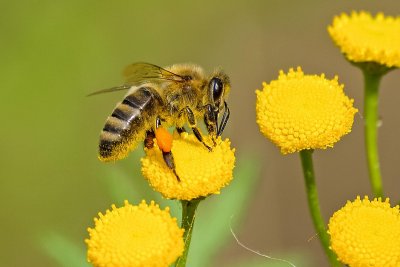News • Sustainable Farming Campaign
Guardian asks "Can we ditch intensive farming and still feed the world" and Sustain responds
In a detailed feature, Guardian journalist Fiona Harvey explores how much more food and land we may need and the options for feeding the world in the future. She looks at the implications for using different technologies and farm systems from urban farming to organic to drones. Sustain and Sustain members provided considerable input to this important piece.
On agroecological systems Vicki Hird, Farm Campaign Coordinator is quoted:
"“It is about using natural systems,” says Vicki Hird, food and farming campaigner at Sustain, an NGO. “Reducing the use of artificial chemicals, such as fertilisers and pesticides is an important part of it. Looking closely at the soil and other conditions, nourishing the soil, taking account of the natural pest cycles, natural predators and crop cycles.”
She argues that agroecology could be widely adopted as an alternative to damaging industrialised farming. Farmers can sow crops such as clover as cover to suppress weeds and return organic matter to the soil, and rotate crops, including vegetables such as legumes that fix nitrogen. It requires close attention to the land itself and the crops, rather than the standard mode of farming which is to plant cash crops at the highest yield possible.
“Diversity is the key,” says Hird. “Having these huge monocultures does not lend itself to being managed in a natural way, and can damage biodiversity.”
Diversifying into heritage crops, such as older varieties of fruit and vegetables and a wider variety of grains than the current few strains of wheat that are the norm in intensive agriculture, can also yield benefits. These crops have their own advantages, including natural resistance to certain diseases, pests or conditions.
“You might get a lower yield [by these methods],” Hird concedes, “but you get a higher level of nutrients in the food produced.”"
The article ends with a valuable conclusion:
"Experts say a second revolution is now needed, that will encompass not just our growing methods but consumption habits and our entire food economy. This would have to involve farmers, retailers, governments and consumers. In last century’s farming revolution, only one future was offered: industrialisation. For this century, there will be a plurality of alternatives, and combinations of new and ancient technology, and all have their place.
“There is not one huge conceptual change where you do everything differently and everything will be OK,” says Tim Searchinger of Princeton University and the World Resources Institute. “There is not one single answer. There are lots and lots of things we can and need to do.”"
You can read the full Guardian piece here.
Published Tuesday 29 January 2019
Sustainable Farming Campaign: Sustain encourages integration of sustainable food and farming into local, regional and national government policies.





